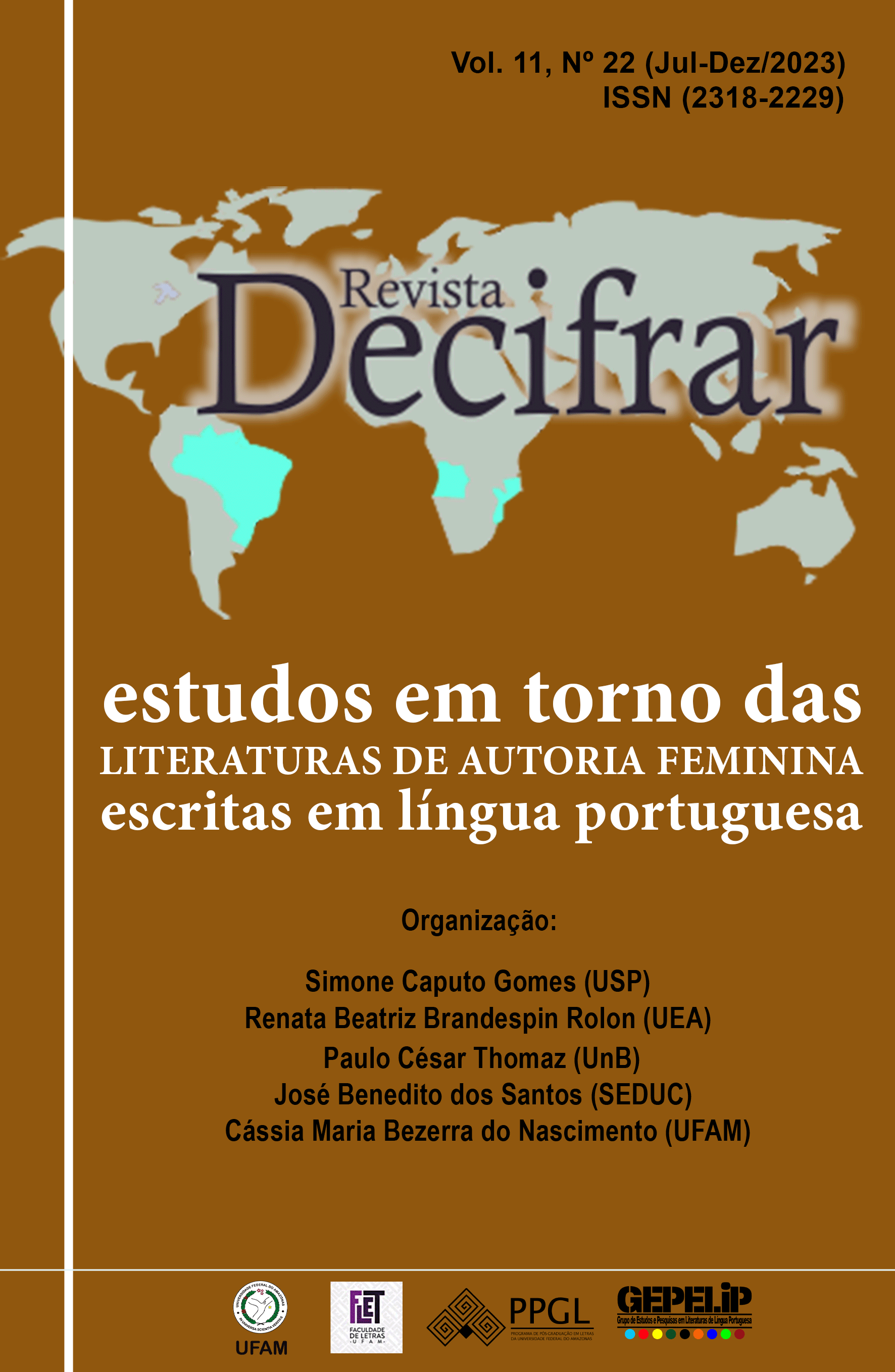O LUGAR DA RESIDUALIDADE NA MODERNA CRÍTICA LITERÁRIA
THE PLACE OF RESIDUALITY IN MODERN LITERARY CRITICISM
DOI:
https://doi.org/10.29281/rd.v11i22.13674Palavras-chave:
Estudos Culturais; Literatura Comparada; Residualidade; Interdisciplinaridade; Crítica Literária.Resumo
O presente trabalho tem como principal objetivo o apontamento de algumas reflexões acerca da inter-relação entre o campo investigativo dos Estudos Culturais e a seara da chamada Literatura Comparada, de modo a evidenciar as mútuas contribuições metodológicas que se tem desenvolvido entre essas áreas do saber humano. A partir disso, apresenta-se, aqui, a sistematização da teoria da residualidade como fruto desse diálogo transdisciplinar. Pensada pelo poeta, ensaísta e pesquisador cearense Roberto Pontes, a residualidade é um constructo teórico ambientado nos estudos literários, mas que se utiliza de diversas perspectivas e vieses metodológicos, dialogando principalmente com o campo dos Estudos Culturais a partir do pensamento do teórico britânico Raymond Williams (1979). Evidencia-se, desse modo, que a sistematização do método investigativo da Residualidade foi fruto desses diálogos e contribuições dos chamados Cultural Studies para com a Literatura Comparada, resultado da moderna descentralização e pluralismo no âmbito dos estudos literários de teor comparatista. A apresentação dessas inter-relações metodológicas na moderna crítica literária comparatista é, portanto, o fulcro central deste trabalho.
Downloads
Referências
ALDRIDGE, A. Owen. “Propósito e Perspectivas da Literatura Comparada”. In: COUTINHO, Eduardo; CARVALHAL, Tânia. (Orgs.). Literatura Comparada: Textos Fundadores. Trad. Sonia Torres. Rio de Janeiro: Rocco. 1994.
CARVALHAL, Tânia. “Teorias em Literatura Comparada”. In: Revista Brasileira de Literatura Comparada, volume 02, número 02, 1994.
CEVASCO, Maria Elisa. Dez Lições Sobre Estudos Culturais. São Paulo: Boitempo Editorial, 2003.
COUTINHO, Eduardo de Faria. “Literatura Comparada, Literaturas Nacionais e o Questionamento do Cânone”. In: Revista Brasileira de Literatura Comparada. Volume 03, número 03, 1996.
_________. “O Comparatismo e Seus Diálogos nos Tempos de Hoje”. In: ComparArte. Rio de Janeiro, volume 01, número 01, Jan.-Jun. 2017.
CULLER, Jonathan. Teoria Literária: Uma Introdução. Trad. de Sandra Vasconcelos. São Paulo: Beca Produções Culturais Ltda, 1999.
DURÃO, Fábio Akcelrud. O Que é Crítica Literária? - São Paulo: Nankin Editorial/Parábola Editorial, 2016.
JOHNSON, Richard. “O Que é, afinal, Estudos Culturais?”. In: SILVA, Tomaz Tadeu. (org. e trad.). O Que É, Afinal, Estudos Culturais? 4ª ed. Belo Horizonte: Autêntica Editora, 2010.
MACHADO, Á. M.; PAGEAUX, D. H. Da Literatura Comparada à Teoria da Literatura. Lisboa: Edições 70, 1988.
MARTINS, Elizabeth Dias. “O Caráter Afrobrasiluso, Residual e Medieval no Auto da Compadecida”. In: LEÃO VAZ, Ângela; BITTENCOURT, Vanda de Oliveira (orgs.). Anais do IV Encontro de Estudos Medievais. Belo Horizonte: ABREM/PUC-Minas, 2003.
NITRINI, Sandra. Literatura Comparada: História, Teoria e Crítica. 3ª ed. São Paulo: Edusp, 2015.
PONTES, Roberto. “Entrevista sobre a Teoria da Residualidade, com Roberto Pontes, concedida à Rubenita Moreira, em 05/06/06”. Fortaleza: (mimeografado), 2006.
_________. “Lindes Disciplinares da Teoria da Residualidade”. Fortaleza: (mimeografado), [s/d].
_________. Poesia Insubmissa Afrobrasilusa. Fortaleza: EDUFC/Rio de Janeiro: Oficina do Autor, 1999.
_________. “Pródromos Conceituais da Teoria da Residualidade”. In: LIMA et al (orgs.). Matizes de Sempre-Viva: Residualidade, Literatura e Cultura. Macapá: UNIFAP, 2020.
TORRES, José William Craveiro. “Alusão, Intertextualidade e Residualidade: Aproximações e Distanciamentos”. In: PONTES, Roberto et al. (Orgs.). Residualidade e Intertemporalidade. Curitiba: Editora CRV, 2017.
WILLIAMS, Raymond. “Dominante, Residual e Emergente”. In: _________. Marxismo e Literatura. Rio de Janeiro: Zahar Editora, 1979.
Downloads
Publicado
Como Citar
Edição
Seção
Licença
Copyright (c) 2024 Tallyson Tamberg Cavalcante Oliveira Silva

Este trabalho está licenciado sob uma licença Creative Commons Attribution 4.0 International License.
Todos os artigos desta revista obedecem a licença Creative Commons - Attribution 4.0 International (CC BY 4.0).










